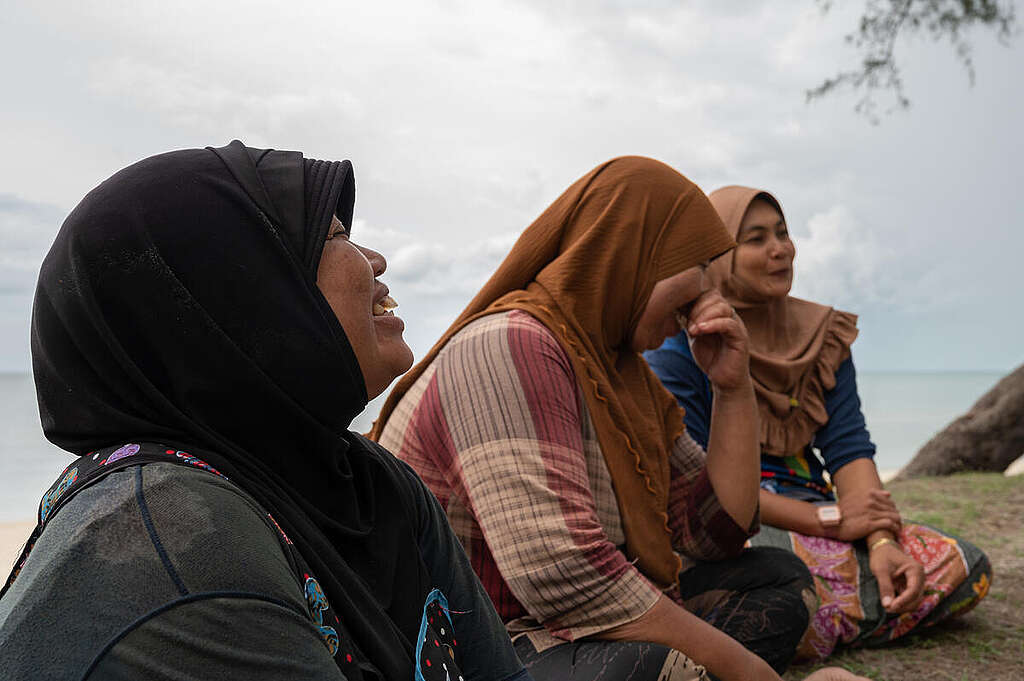
"Men are the elephant's front feet" is a famous Thai saying, meaning men are the leaders in a family. This has long been the dominant narrative in a rather patriarchal country, but especially in fishing communities. Traditionally, men are responsible for offshore fishing to feed family members. Women, on the other hand, oversee household activities and take care of children and family members.
But in the Chana community, a coastal village in the southern province of Songkhla, Thailand, things are different. Here, women participate in offshore fishing, leading the sustainable development of the community, as well as movements that protect the ocean.
These "aunties" – a term to acknowledge and show respect – have challenged the deep-seated male-dominated perception of fishing communities across the country.
"Married" to the ocean
Chana is famous for its dove-singing competition and abundant natural resources, especially the ocean. For decades, the Chana ocean has fed the local communities: its seafood is exported across Thailand and overseas to countries like Singapore, Malaysia, China, Korea, and Japan. The pristine beach serves as a public space for community activities, such as the annual boat race called "A Boi Ma" and a relaxing area for people in neighboring provinces.
Located in the gulf of Thailand, Chana's sea hosts more than 196 marine species including crab, shrimp, crayfish, and endangered marine animals like seahorse, turtle, and dolphin. The majority of the local population relies on this sea for their livelihood.
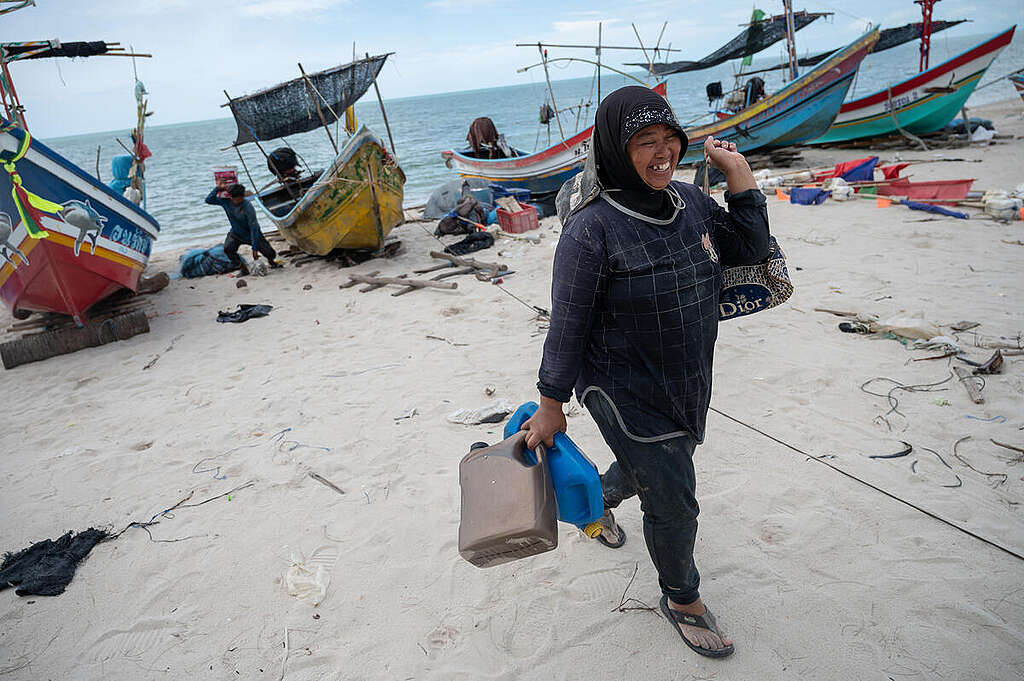
"We have food because of the healthy ocean. We are lucky to live by the sea, to be fishers, to have this sea," Lorkeebha Mhadlheng said.
Lorkeebha is a member of the "Tao Kai" group (translated as "pregnant turtle"). Formed by a small group of women fishers who want to advance the economic value of local products in a sustainable way, Lorkeebh along with Sainub Ya-manya, Loseesa Lemlor, and other members, explained that they were born in fishing families and learned skills that have been passed on for generations. Although they grew up and got married, their relationship with the ocean remains.
"I'm still fishing even after I'm married. Even when I was eight-months pregnant, I was still getting the boat ready for the fishing trip," Lorkeebh said.
If men can, women can!
Since 1993, the Chana sea has been threatened by industrial fishing, with large fishing vessels and bottom trawlers invading coastal fishing waters - the area within six nautical miles from land. Without proper management, the Chana sea became "empty." Local fishers had to sail outside their home to fish; others completely stopped fishing and moved to different sectors such as factory or restaurant work. Some even moved to nearby countries like Malaysia to find work.
"Bottom trawlers take away everything. So every Friday we would gather to talk because we couldn't live like that. Many families were struggling. We had to start over," the Tao Kai group explained.
The local people came up with solutions to revive the health of the sea. They have agreement among the communities to use more sustainable fishing, such as by using hand-made nets, with the mesh size of the nets varying depending on species, in order to avoid bycatch and juvenile fishes. This is to ensure that there will be fishes for generations to come.
Instead of trying to make as much money as possible in a short period of time, "it is better to have a healthy ocean that we can rely on for generations," Lorkeebh emphasized.
Apart from the Tao Kai group, there are many other groups and movements in the Chana community that are led by women. They seek ways to improve community, but also protect natural resources, with the belief that no gender is superior to the other.
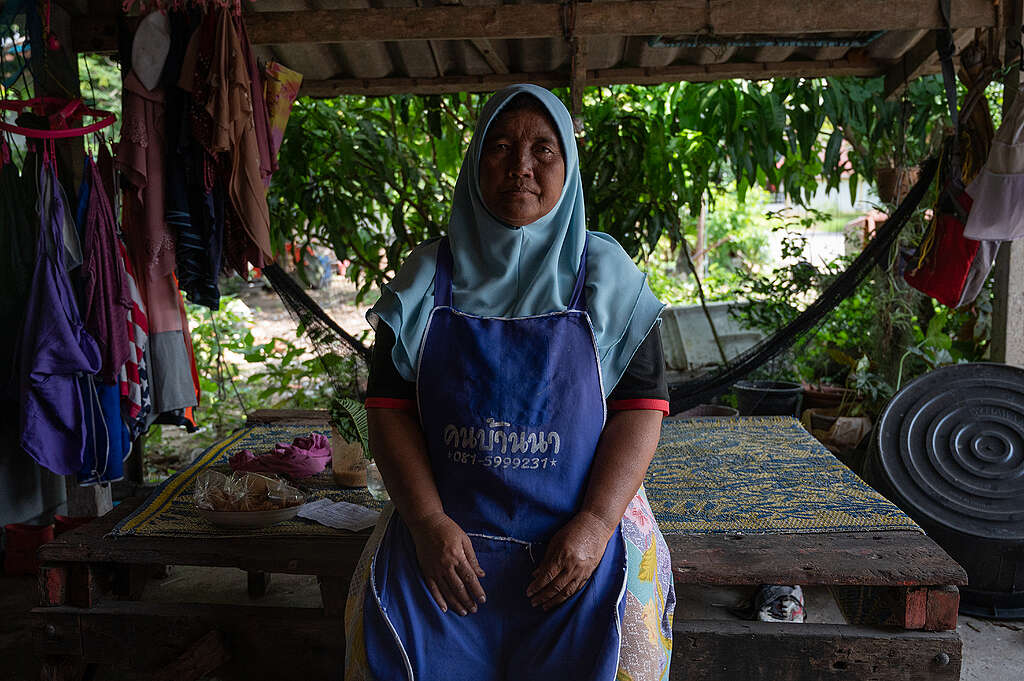
Nipao Tohkawee from the Chana Rak Thin movement, which protests against industrial projects in Chana says,
"In our community, women and men are equal. We believe that if men can do it, women also can. Everything is equal. Some people think women cannot sail far away from shore. We could. We fish both in the canal and ocean, catching fish to shrimps."
From Fishers to Activists
Currently, the Chana community is fighting against an industrial project covering about 27 million square meters in the coastal area of the district. The mega-project, backed by the government and corporate companies, was approved despite speculation of corruption, illegal land purchase, lack of local participation, and fears that it could create devastating harm to the ocean and the natural resources in the area.
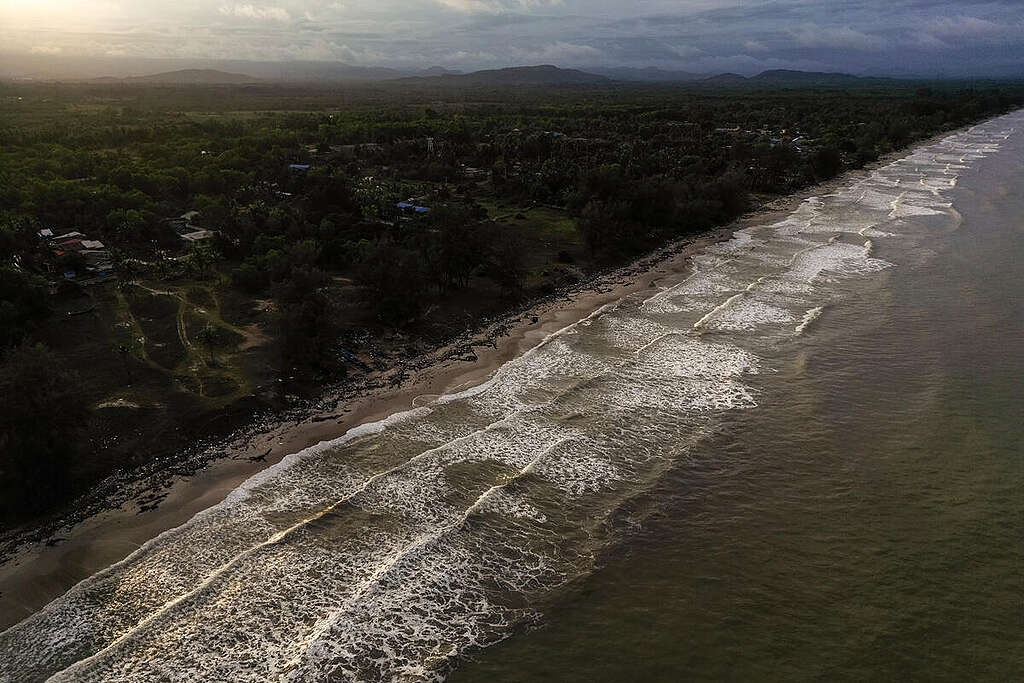
The narrative that corporate companies and the government are constructing in order to push this industrial zone is that Chana is an arid land, and that it could help create jobs in the community.
Greenpeace Thailand worked with local communities and academics to study the potential impact of the industrial zone in the past two years. In contrast to the claim, the study found that the dove industry, fishing, and agriculture in the area, has an economic value of more than 14 million USD, 12 million USD, and 6 million USD per year respectively.
While these factories could create jobs, it would also destroy the existing jobs within the fishing sector, farming, and dove breeding, in addition to the impact on natural resources, health, culture, and the way of living.
This is not the first time the local people have had to fight against an industrial project. In the early 2000s, they fought off the trans Thailand-Malaysia gas pipeline and other subsequent industrial projects in the district; and every time, it was all decided by people in power without local participation.
The women fishers in the community stand up for their rights. Up to now, they have been at the forefront of the movement against natural threats for three decades.
"We have to fight because if we don't, our children will not have a place to live. The next generation will live for 20-30 years, but we will die soon. If we don't have this sea, we are like dead people. We were born by the sea and want to die by the sea," Sainub said.
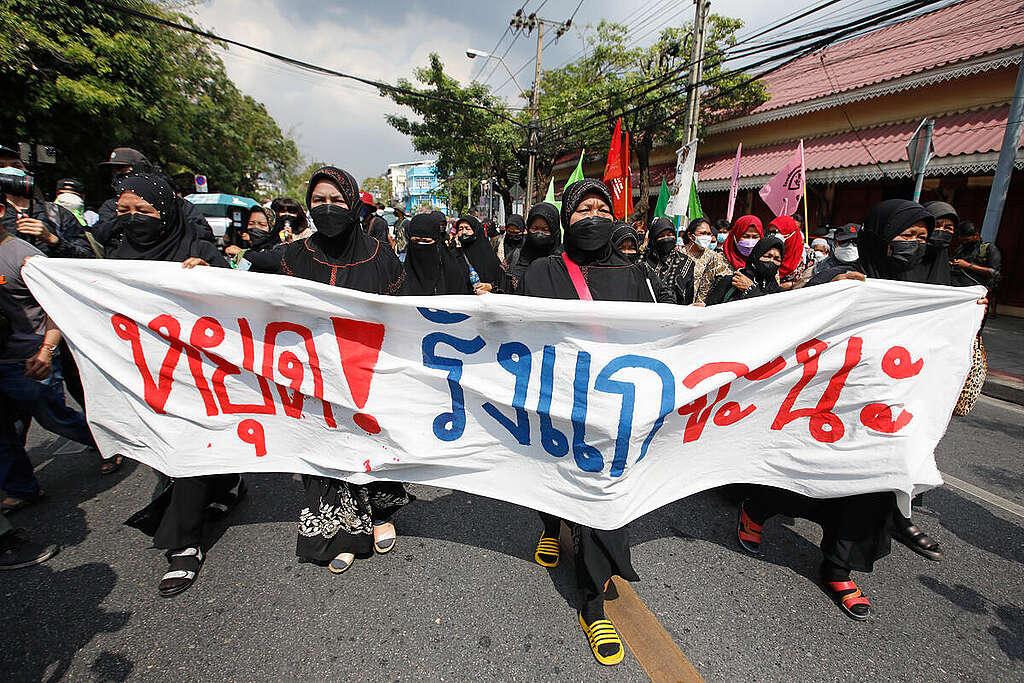
After the Chana industrial project was approved by the cabinet in 2019, the so-called "Chana Rak Thin" movement staged a protest at the first public hearing.
Led by aunties from the Chana communities, the movement traveled to the capital city and camped outside the government house in protest. From small movements in the community, it gained traction and public attention, forcing the government to finally put the project on hold until the Strategic Environmental Assessment was completed.
The potential threat has propelled people in the community to fight. What they ask for is nothing more than participation in the development of their home, and the rights to live in a clean and safe environment.
There is still a long way to go in this prolonged fight, but the fact that women in the Chana community have become prominent figures in the movement has challenged the long-standing perception of women in the fishing community, not just in Chana, but across the country.
Pannapa Phanitjaroen and Songwut Jullanan are the Communications Officers at Greenpeace Thailand






